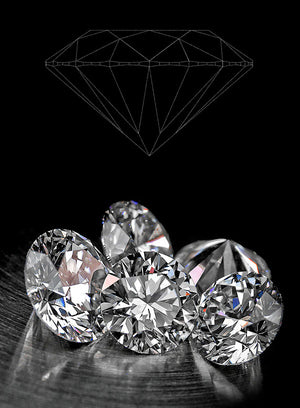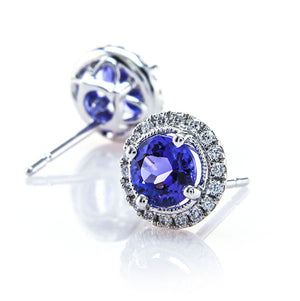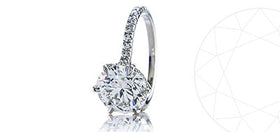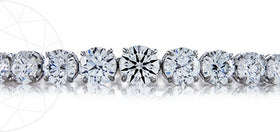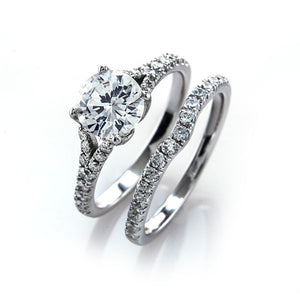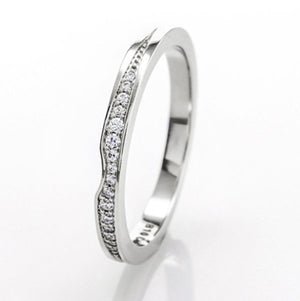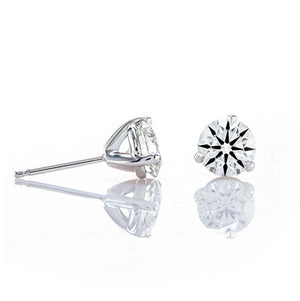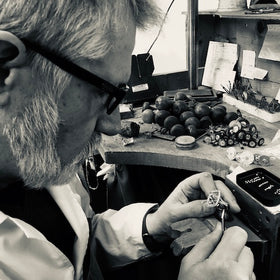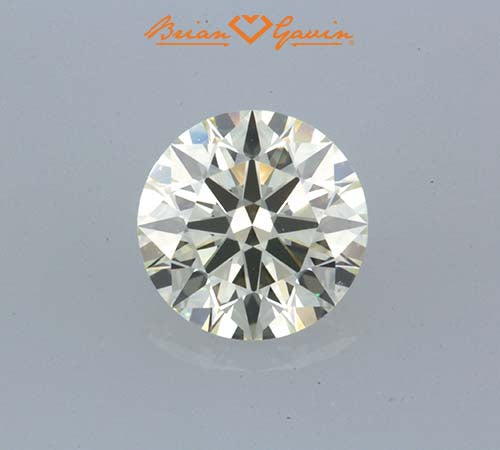
What is the average diamond color bought in America?
“Do you happen to know what the GIA color grades are for most diamonds sold in the USA? Obviously I’m in the market for an engagement ring. I’m trying to determine what most people buy, in attempt to keep things kind of balanced. The perfectionist side of me, wants to buy a 0.75 carat, D-color, Internally Flawless diamond, but my more practical side has me wondering whether I’d be just as happy with an I-color, SI-1 clarity diamond. I’m looking for some perspective, trying to figure out what most people buy. So if you happen to know what the average color grade of GIA graded diamonds bought in the USA happens to be, that might help.”
GIA color grades of most diamonds sold in the USA:
According to the diamond color grading portion of the GIA Gemology course, the average diamond color sold in the United States is N-color. However, the course material does not state when this information was collected, and I’m unable to find any current indicators. While I can appreciate the concept behind wanting to know what the average color grade of GIA graded diamonds sold in the USA would be, I believe there is a more effective approach.
First off, since there is nothing average about a Brian Gavin Signature round diamond, there’s no point in talking about the averages… The production standards of our diamonds is so high, that the hearts and arrows diamonds that we offer, represent the Top 0.001% of the annual production for round brilliant cut diamonds. The high volume of light return, and incredible sparkle factor is well beyond average. We’re more or less, light years beyond average. Which is why you might find it difficult to ascertain the color of this 0.763 carat, N-color, VS-2 clarity, Brian Gavin Signature round diamond.
Deciding which diamond color to pick:
Most people spend a lot of time trying to decide which diamond color to pick, when in fact, it actually has very little effect upon the visual properties of the diamond. The overall cut quality of the diamond deserves much more attention, because this is what will dictate the light performance of the diamond.
The reality is that the majority of people are not that sensitive to the difference between a color grade or two, sometimes not even three. Thus I feel that you’re likely to be perfectly happy with anything between D-color and I-color. This range faces up white to most people, with some people just beginning to detect a hint of warmth around J-color, and most people being able to clearly see a bit of warmth at N-color, but not so much that it prevents that range of color from being the average diamond color sold in the USA.
Cut Quality is More Important than Diamond Color:
The light performance of a diamond includes the volume of light return being reflected by the diamond, as well as the balance of brilliance (white sparkle) and dispersion (colored sparkle / fire) as well as the size of the sparkle. The light performance of your diamond will be dictated by the exact proportions, as well as the consistency of facet shape, alignment, and indexing. People tend to assume that a diamond with an overall cut grade of GIA Excellent or AGS Ideal will exhibit the best light performance, but this assumption is not necessarily accurate.
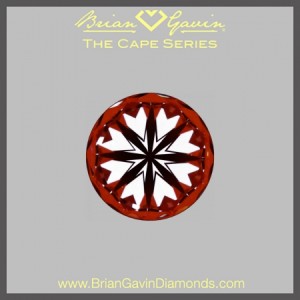 The fact of the matter is that the diamond grading laboratories do not take the optical precision of a diamond into account as part of their grading practices. Doing so would make them largely unpopular with the vast majority of diamond cutters, who tend to focus more on the retention of carat weight (higher profits) as opposed to light performance.
The fact of the matter is that the diamond grading laboratories do not take the optical precision of a diamond into account as part of their grading practices. Doing so would make them largely unpopular with the vast majority of diamond cutters, who tend to focus more on the retention of carat weight (higher profits) as opposed to light performance.
If you’re wondering how you can be assured that the diamond you purchase exhibits the highest volume of light performance, it’s easy. Just look for this exceptional pattern of hearts and arrows, it is an integral part of every Brian Gavin Signature round diamond. It can only be achieved by cutting a diamond with the greatest amount of precision. The proportions of the diamond have to be within the optimum range, and every facet has to be crafted with extreme precision. The combination of these proportions, and the highest degree of optical precision, produces the highest volume of light return, and sparkle factor.





